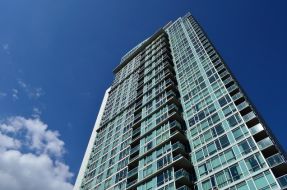Maximizing Rental Income: Strategies for Effective Property Management

Are you a property manager in search of strategies to help maximize rental income? Managing a property is no easy feat. There are various factors that come into play when trying to ensure the highest possible returns from your investment while still maintaining an attractive and desirable space for potential occupants. Fortunately, there are numerous ways to become an effective and successful property manager—all with the goal of ensuring optimal rental income. In this blog post, you will learn some helpful tips and tricks for maximizing your rental income with effective property management techniques. Here’s what we’ll cover: understanding market conditions, creating competitive prices, developing thoughtful marketing strategies, utilizing digital channels for improved occupancy rates, streamlining processes using technology-based solutions, and gaining insights through analytics data analysis. Let’s get started!
Setting the Right Rental Prices – Establish a fair market price based on comparable rental units and local housing trends
When it comes to setting rental prices, there are many factors to consider in order to find the perfect balance between profit and fairness. Determining the right rental price not only ensures that you receive the best possible return on your investment, but also makes sure that your tenants feel that they are paying a fair price for the housing provided. By researching comparable rental units and local housing trends, you can gain valuable insight into what the current market demands, and set your prices accordingly. While it may take some time to find the sweet spot, taking the time to do this research is crucial to ensuring that everyone involved is satisfied with the outcome.
Finding the Right Tenants – Use a rigorous screening process, including background and credit checks
As a landlord, finding the right tenants for your property can be a daunting task. It’s crucial to ensure that your property is in good hands, and that means employing a rigorous screening process. Conducting background and credit checks can help you weed out tenants who may not be a good fit for your property. With this essential information, you can make informed decisions and avoid renting to tenants who have a history of evictions, unpaid debts, or criminal activities. An in-depth screening process is a small investment that can pay off in the long run by reducing the risk of property damage, missed rent payments, and other headaches. It’s always better to be proactive than reactive when it comes to finding tenants, so don’t cut corners when it comes to screening potential renters.
Establishing Clear Ground Rules – Create a clear lease agreement to protect both the tenant and landlord
As a landlord, it’s important to establish clear ground rules with your tenants in order to avoid any confusion or misunderstandings. One of the best ways to do this is by creating a clear lease agreement that outlines all terms and conditions of the rental agreement. This agreement should protect both you and your tenant and include important information such as rent due dates, late fees, maintenance responsibilities, and consequences for violations. By having a detailed lease agreement in place, you can create a positive rental experience for both parties and avoid any potential conflicts that may arise in the future.
Ensuring Property Maintenance – Hire reliable contractors or vendors for regular, preventive maintenance
Owning a property can be a rewarding experience, but it also comes with its fair share of responsibilities – including ensuring that your property stays well-maintained. Taking preventive measures to keep your property in great condition not only helps you avoid costly repairs down the road, but also ensures the safety and comfort of those who reside in or visit your space. One of the most effective ways to maintain your property is by hiring reliable contractors or vendors to perform regular, preventive maintenance tasks. From checking your HVAC system to inspecting your roof, reliable professionals can help you address any issues early on, giving you peace of mind and saving you time and money in the long run.
Maintaining Good Communication – Keep in touch with tenants regularly to ensure their satisfaction
Maintaining good communication with tenants is crucial to keeping them satisfied with their living arrangements. Regularly checking in with them to see how everything is going can help you address any potential issues before they become major problems. Moreover, it shows tenants that you care about their well-being and are committed to providing them with a safe and comfortable place to live. This can improve tenant retention rates and help spread positive word-of-mouth about your properties. In short, keeping in touch with your tenants is not just important – it’s essential for maintaining a strong and successful rental business.
Understanding Local Landlord-Tenant Law – Educate yourself on local laws to avoid costly legal issues
As a renter, it’s important to understand the local landlord-tenant laws in your area. These laws can vary from one city to the next, so it’s vital to educate yourself on the specifics of your locality. Failure to comply with these laws could result in legal issues that could be quite costly. Knowing your rights as a tenant can help you avoid getting taken advantage of by unscrupulous landlords. Additionally, being aware of your responsibilities as a renter can ensure that you don’t inadvertently violate any rules and end up facing legal consequences. Taking the time to research local landlord-tenant laws is a wise investment of your time. Not only will it save you time, money, and stress in the long term, but it will also give you peace of mind knowing that you’re informed and prepared for any situation that may arise.
Becoming a successful landlord isn’t easy, but following these steps is sure to boost your chances of having a wonderful and profitable tenant-landlord relationship. Having well-informed tenants that adhere to their lease and maintain the property can make all the difference; consider scheduling regular communication days with them, such as monthly or quarterly check-ins, to keep everyone on the same page. Furthermore, keeping yourself informed of local landlord-tenant law is key to ensuring you’re staying compliant with local laws. There are plenty of great resources available online for you to quickly brush up on your knowledge in this area.







